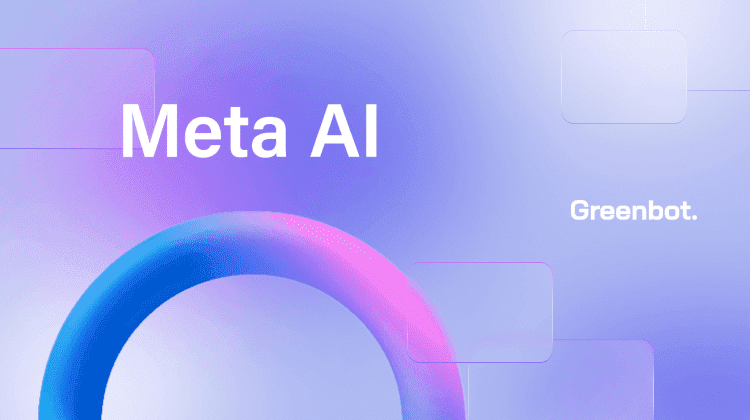
Meta, formerly Facebook, is a multinational technology conglomerate and the parent company of one of the world’s most popular social media platforms, Facebook. Over the years, the company has transformed significantly, introducing groundbreaking products and technologies.
One is Meta AI, a smart assistant built into Meta platforms like Facebook, Instagram, Threads, and WhatsApp. But what does Meta AI actually do? Is it an alternative to tools like ChatGPT? Here’s a clear overview of Meta AI, its importance, and how it’s changing the game for creators.
Understanding Meta AI’s Purpose
Artificial intelligence is now central to technological progress, and Meta is using it to transform how we interact online. Meta AI is built to help users learn, create, and connect in fresh and meaningful ways. By seamlessly integrating AI into its platforms, Meta’s AI products are revolutionizing everyday tasks, making them faster and more efficient.
Meta AI focuses on improving natural language processing. This allows for smarter chatbots and real-time translations. It also enhances computer vision, supporting tasks like content moderation. Additionally, Meta AI drives innovation in AR/VR technology, enabling immersive Metaverse experiences.
These efforts reflect Meta’s broader mission. The goal is to connect people effortlessly across virtual and digital spaces, creating a more unified online experience.
How Meta AI Powers Facebook Features
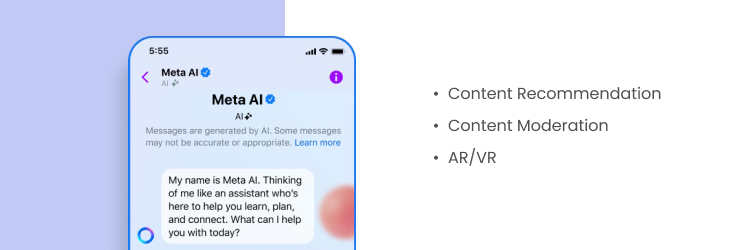
Meta AI enhances Facebook’s features beyond just acting as a chatbot assistant. By integrating AI, Meta AI expands Facebook’s capabilities to offer smarter, more personalized experiences, improving user engagement and interactions on the platform. Here is an overview of how the AI powers some Facebook features:
- Content Recommendation: Meta AI determines the content in your Facebook account feed and the order in which it seems by predicting your interests. It uses your interactions with previous content to generate new suggestions, ranking them to show you the most valuable posts at the top of your feed.
- Content Moderation: Meta AI identifies, sorts, and removes harmful or unwanted content from your feed. Posts that violate Facebook’s rules are flagged and reviewed for appropriate action, preventing the spread of inappropriate content. The AI can also adapt to address new types of unwanted content quickly.
- AR/VR: Facebook’s immersive features use AI to understand and interact with the world from a first-person perspective, similar to how humans engage with web content like 360 photos and videos.
What is the Meta AI App?
Meta AI app (currently available as a web app only) is a standalone version of the chatbot integrated into other Meta products like WhatsApp, Facebook Messenger, and Instagram DM. It’s an intelligent companion that uses the latest advancements in AI technology to provide real-time information and accurate answers.
Beyond this, Meta AI can also serve as your creative assistant. It can generate images from written prompts and voice commands, edit or transform generated images into animations, and create images of yourself in any scenario. It’s completely free, easy to access, and can be a very useful tool for students and creatives.
Key Technologies Behind Meta AI
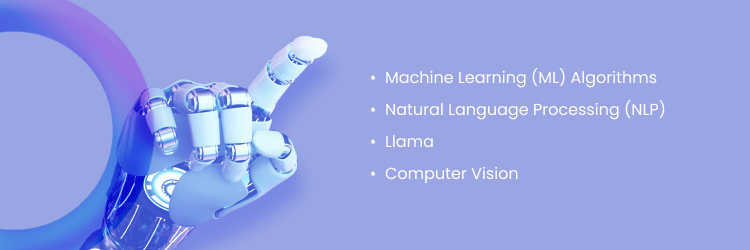
AI assistants/chatbots rely on several key technologies to function efficiently, with the most familiar ones including:
- Machine Learning (ML) Algorithms: Meta AI uses machine learning to predict user preferences, recommend content, and adapt to new information quickly. These algorithms are trained on vast datasets to improve recommendation accuracy and content moderation continually.
- Natural Language Processing (NLP): Meta AI relies on this technology, using machine learning and deep learning to help devices like laptops and smartphones understand and respond to human language. It forms the backbone of Meta AI’s ability to process image generation requests.
- Llama: A family of open-source LLMs powering Meta AI. It handles tasks like long text summarization, analyzing audio and video, and processing documents.
- Computer Vision: This is crucial for the metaverse, enabling digital devices like smart glasses and VR headsets to understand the visual world around us. Meta AI uses computer vision to interpret data from visual sensors, enhancing the immersive experience of the virtual environment.
Meta AI’s Impact on the Future of AI
Meta AI stands out by integrating with the social media platforms we use daily. It goes beyond traditional AI chatbots and assistants. Users can now share images with Meta AI and have conversations based on them. The AI also supports voice interaction, responding in your chosen AI voice.
For businesses, Meta AI powers click-to-message ads. This allows companies to create AI chatbots that handle common customer queries.
These innovations highlight the future Meta AI is shaping. Over time, it will impact many industries and improve lives. It also aims to build a more connected global society through AI ethics, although challenges remain.
Benefits of Meta AI
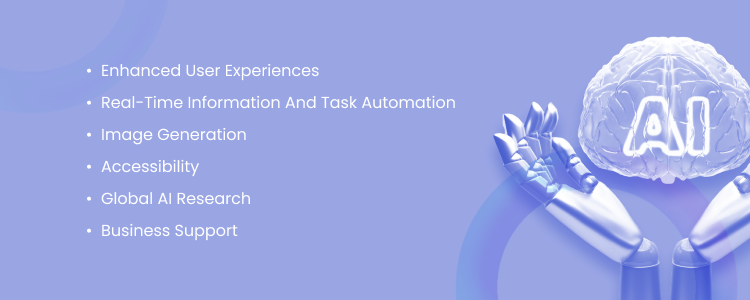
- Enhanced User Experiences: Meta AI personalizes content on platforms like Facebook and Instagram. It tailors news feeds and Explore pages based on your interests.
- Real-Time Information and Task Automation: The AI provides instant answers to questions and automates tasks like text summarization and copywriting. It’s a helpful tool for students, creatives, and professionals.
- Image Generation: Meta AI creates images from written prompts or voice commands. This feature helps users bring ideas to life visually.
- Accessibility: Meta AI is free and easy to access on platforms like Facebook, WhatsApp, and Instagram, making it a highly accessible option compared to competitors.
- Global AI Research: Meta’s Fundamental AI Research (FAIR) advances machine intelligence and creates innovative products. These efforts benefit both Meta users and the broader AI community.
- Business Support: Meta AI offers tools like click-to-message ads with AI chatbots. These bots handle customer queries, provide support, and improve user engagement, making businesses more efficient.
Ethical Challenges and Concerns
Meta AI uses data from other Meta products, which raises privacy concerns. For example, discussing shoes on WhatsApp might lead to targeted ads on Facebook or Instagram. This practice brings up ethical questions about consent and data use. Many users may not fully understand how their information is being utilized.
One example is Kristen Bell’s case, where her data was used for AI training without her clear consent.
In the U.S., the lack of a federal data privacy law allows companies like Meta to use data more freely. While state laws like California’s CCPA offer some protection, the rules vary. These differences make it hard to maintain consistent ethical standards. They can also lead to algorithmic bias and harm underrepresented groups.
Comparison with Competitor AI Technologies
| Feature/Technology | Meta AI | Google AI (Gemini) | OpenAI’s ChatGPT |
| Primary Focus | Social media integration | Search and information retrieval | Versatile conversational AI |
| Integration | Embedded within Facebook, Instagram, and WhatsApp for personalized content, moderation, and interaction | Integrates into Google services for enhanced search and data understanding | Standalone chatbot capable of diverse tasks like content generation and Q&A |
| Innovation | Directly enhances user engagement and ad targeting within Meta platforms | Broadens utility in research, enterprise applications, and everyday searches | Widely adopted for content creation, customer support, and interactive learning |
| Pricing | Free within Meta’s ecosystem with potential for monetization via ads and premium features | Varies depending on enterprise needs, often premium for advanced features | Typically subscription-based with varied tiers, free access for basic usage |
| Models | Uses Llama models for language understanding and image generation | Uses Google’s own AI models for search enhancements | Uses OpenAI’s GPT models for various applications, including language understanding, image generation, and creative tasks |
How Meta AI Supports Developers
Meta AI offers powerful tools to help developers. These include:
- The Access Token tool, which creates user and app tokens for testing.
- The Graph API Explorer, used to test, create, and debug API calls.
- A comments moderation tool to manage public page comments and settings.
- A playable preview tool for testing interactive content.
- The App Ads Helper for troubleshooting ads.
- The JS SDK Console for debugging JavaScript issues.
- An API upgrade tool to streamline updates.
These tools make development easier and more efficient.
Practical Use Cases of Meta AI
- Chatbots and Virtual Assistants: Meta AI powers personal assistants in its social apps. They help users with research, planning, and creating content.
- Augmented and Virtual Reality Applications: Meta AI integrates into AR and VR devices, like Orion AR glasses and Quest 3S MR headset. It enables immersive, interactive experiences.
- Business Use on Facebook: Meta AI supports businesses on Facebook with AI chatbots. They handle customer inquiries, log complaints, and moderate comments. This enhances customer engagement.
- Image Generation for Marketing: Meta AI lets businesses create and edit images for marketing. It generates dynamic, personalized content within Meta’s ecosystem.
Meta AI Research and Innovations
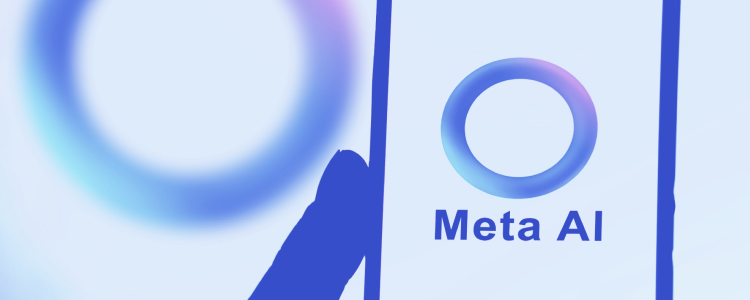
Meta recently introduced its Self-Taught Evaluator model. This innovation reduces the need for human involvement in AI development. It can assess and improve AI models independently. This breakthrough eliminates the need for human annotation during training, moving closer to fully autonomous AI.
Another major project is Meta’s No Language Left Behind. This model supports up to 200 languages. It helps people connect and share content in their native language. It also enables seamless global communication.
How to Stay Updated on Meta AI Developments
The best way to stay updated on the latest AI at Meta is to subscribe to their newsletter. With this, you’re assured never to miss any updates, including news, research papers, event updates, and more.
FAQs About Meta AI
What is the purpose of Meta AI?
Meta AI acts as a personal assistant. It helps you connect with people or target the right market for your product. It provides seamless ways to interact online.
Is Meta AI available to the public?
Yes, Meta AI is available to all users of WhatsApp, Instagram, and Facebook. You can access it directly on these platforms or through its web version.
How does Meta AI differ from other AI platforms?
Meta AI combines natural language processing, machine learning, and computer vision. This creates a more advanced user experience. Its integration with social media platforms also makes it easy to use and highly accessible.
Conclusion: Why Meta AI Matters
Artificial intelligence is transforming industries at a rapid pace. Meta AI is positioned to play a key role in this evolution. Its tools are designed to revolutionize content creation and social connections. These features benefit both new and existing accounts.
Whether for personal or business use, Meta AI offers practical advantages. It helps users adapt to the fast-changing digital world.






















